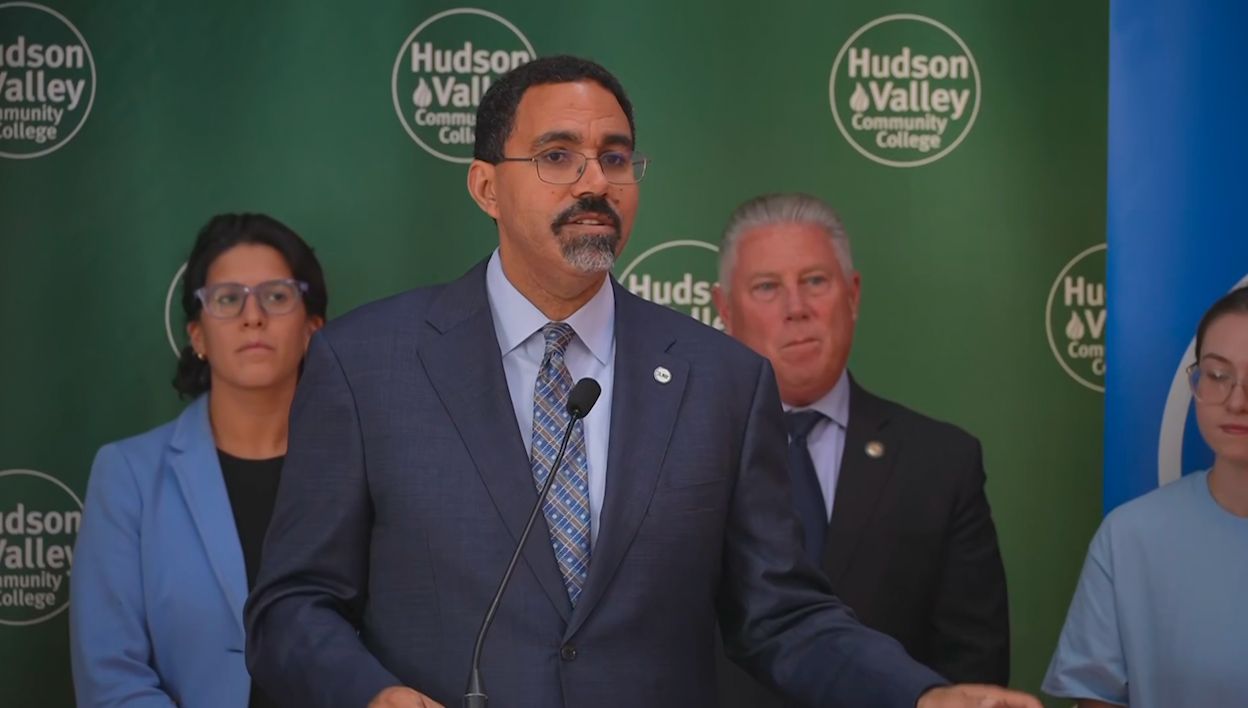SUNY Chancellor John B. King said Friday that the SUNY system has seen “about $32 million” in federal grants cut under the Trump administration.
King linked at least some pulling of what he described as research funding to the Trump administration’s targeting of Diversity, Equity and Inclusion programs across higher education.
“In some cases, those grants were cut precisely because of the commitment we have to diversity, equity and inclusion we have, that’s wrong,” he said. “Many are research grants, so you’re talking about research into things like cancer and innovations that will drive economic development in the state.”
That $32 million is a portion of the $79 million in grants that SUNY said it expected to lose earlier this year, and King stressed that the number should be considered in the context of about $700 million per year in total federal grant funding
Since President Donald Trump has taken office, King has stood firmly by SUNY’s DEI initiatives.
“I’m very distressed about the attack on our core American values,” he said. “America has always been a place that welcomes people from a wide set of backgrounds and tries to provide opportunity for all, that’s what we’re committed to at SUNY.”
Beyond direct losses in federal funding, King said SUNY will feel the impact of the so-called “Big Beautiful Bill” through the broader economic picture, in terms of lost Medicaid and SNAP benefits for families who are within the SUNY system, but also in the form of state dollars.
It comes one week after state budget officials sent out their annual call letter, requesting flat funding and a plan to cut excess regulations from state agencies while warning of a particularly challenging budget year.
Gov. Kathy Hochul and state Budget Director Blake Washington are preparing to scramble an immense state spending plan to absorb massive cuts to Medicaid and other programs, meaning agencies are likely facing some kind of hit.
“We’re worried about the impact that will have on the state budget, but we’re also grateful for the incredible support we’ve seen from Gov. Hochul and we’ve had great support from the Legislature,” King said.
King also said that according to preliminary numbers, SUNY is on track to see an enrollment bump for the third straight year. He remarked that if the increase pans out, it will be the first such streak in decades.
The chancellor was in the Capital Region to celebrate SUNY’s second class of Empire Service Corps members. Created under Gov. Hochul, the program provides 300 hours of paid public service work over the course of the school year.
Students are placed in a cohort aligned with their interest areas and paired with an on-campus or community-based host site. The cohorts include Civic Engagement, Early Childhood Education, Food insecurity, FAFSFA support, Peer Mental Health, Veterans Affairs, and Sustainability, among others.
King told those gathered at Hudson Valley Community College that the success of the program hits close to home.
“Part of why I’m so personally passionate about this work is because if not for the experience of doing service in college, I probably would not have become an educator,” he said.
SUNY reported that this year the number of applicants for the program far outpaced the number of slots 4:1. One of those students is Molly Graiff, who said her experience in the Early Childhood Education program set her up for real-life success.
“I’m able to collaborate with education professionals to learn effective classroom management, how to give great feedback to students and the heart of the career, how to connect with students themselves,” she said.
King was joined by state Assemblymembers John McDonald and Gabriella Romero to celebrate the program, which he described as the latest in a series of initiatives designed to prepare students to enter the workforce.
“It’s a great chance for students to learn skills they’ll need in the workplace. Cooperation, working with people who are different from them, setting goals,” he said.

